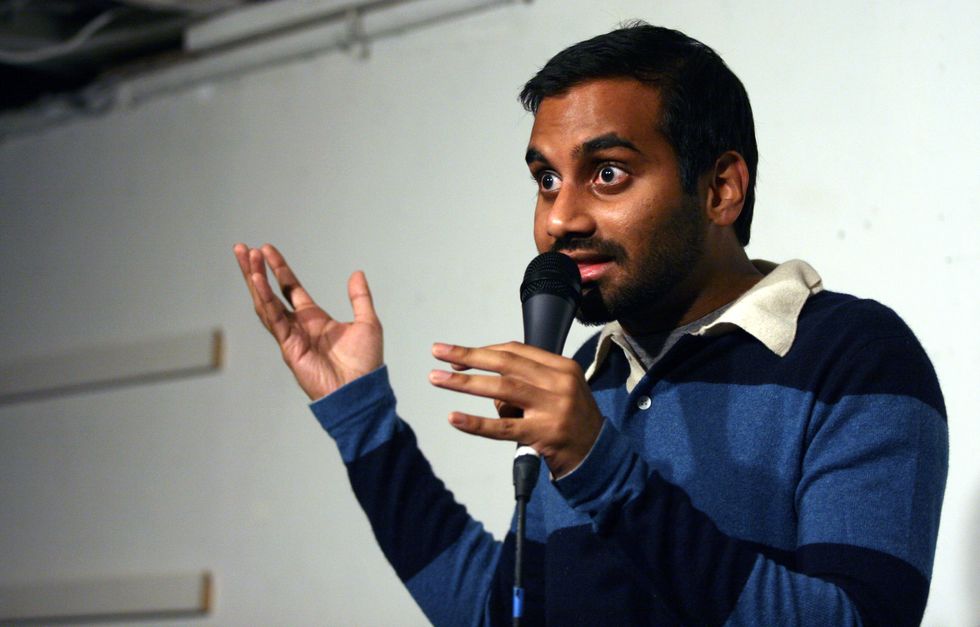As more and more allegations flood in against men in Hollywood, it can hurt to see some of my favorite celebrities go up in flames. I spent days, and continue to spend days, mulling over the Louis C.K. case, weighing the options of what should become of one of my most admired writers and comedians. Not to mention Kevin Spacey, whose series of allegations left me sick to my stomach and brewing with hatred.
I found out about the Aziz Ansari allegations not through Buzzfeed or Twitter or even word of mouth, but through an interesting opinion article in The New York Times titled, “Aziz Ansari Is Guilty. Of Not Being A Mind Reader.” I was fascinated by the opinions presented in the article written by MISTER Weiss, who defended in a pseudo-backward way the actions of Ansari on the basis that it isn’t easy to understand the atmosphere of a situation if nobody is being direct. If you’re a man or a woman, who out of some strange series of lucky draws has never had to experience a situation similar to the account by “Grace,” it may seem fair. However, if you’re among the many women who, ousted or not ousted, continue to live with their encounters with sexual assault, you might see things differently.
Ansari is not a criminal, and he is a product of an environment which favors male domination— true.
I would not say that his actions call for an end to his career, and not just because he is a talented writer and actor who could probably use his gifts to end the perpetuation of these actions (cough, Louis C.K., cough). However, his actions, unlike Weiss suggests, are to be rightfully framed within the #MeToo movement, for the seeming-subtlety of them alone. The inability to properly communicate yes and no, the feeling of pressure and the abuse of power in a relationship, are all too common in contemporary sexual relationships— starting from an early age and spiraling into adulthood.Girls are taught to be modest and coy about their crushes, boys are taught to pursue. Tell her you like her, she probably likes you too. This seems like jungle gym jargon, but it only perpetuates and accumulates over years of repetition, resulting in the failure of young women to develop a proper voice in their relationships. The number one catalyst in the idea that boys will be boys is young women who are okay with acceptance because they’ve been taught nothing else. It doesn’t matter if it makes you scared or nervous, or if you’re 15 or 25, you are vulnerable because you were designed to be that way. It’s not Grace’s fault that she couldn’t find a way out faster because there should always be an equal force on the other side, reassuring that every push is a push and not a pull and asking if everything’s okay and really meaning it. Ansari is an actor, comedian, and writer; if there’s one thing he definitely knows how to do it’s read a room.
Young men know that they’re pressuring young women. They know they’re saying hasty things they might not mean for the sake of their erection (sorry, not sorry). They learn through generations of having the upper hand that they can use that to be more direct with a girl than that girl could ever be with a young man. They know those girls will believe them because even after everything they’ve been warned of, there just seems to be something believable about the whole thing. After all, what is being gullible other than trusting someone who lied to you? What is the sin of being a trusting person?
But then they get older, and the narrative continues. The man buys the dinners not because he cares about her, but because he wants to look like he cares about her because maybe then she’ll sleep with him. She will because she thinks maybe he cares and maybe he doesn’t buy dinner for everyone because what is being gullible aside from trusting someone you thought you could trust? Aziz Ansari is not a monster. He is a product of his environment, an environment which has been stained with inequality and needs to be addressed on all levels.


















